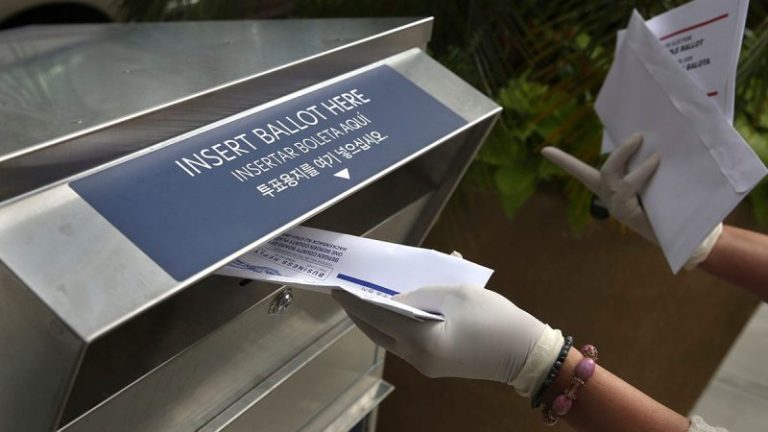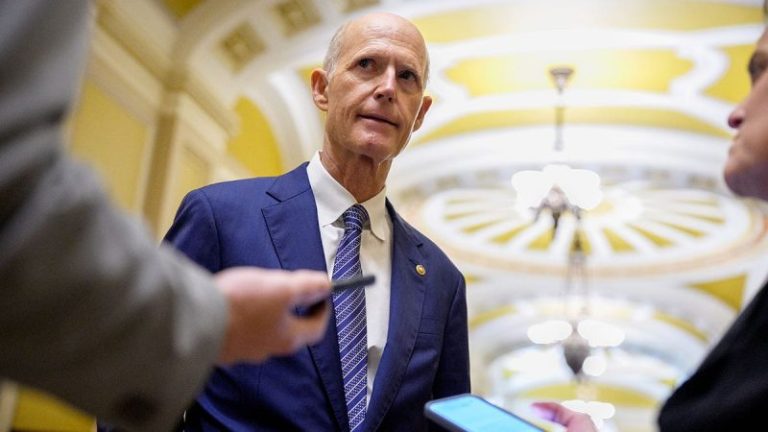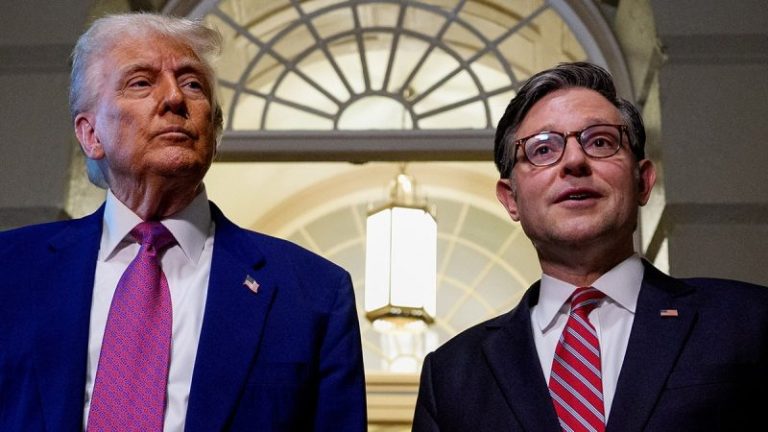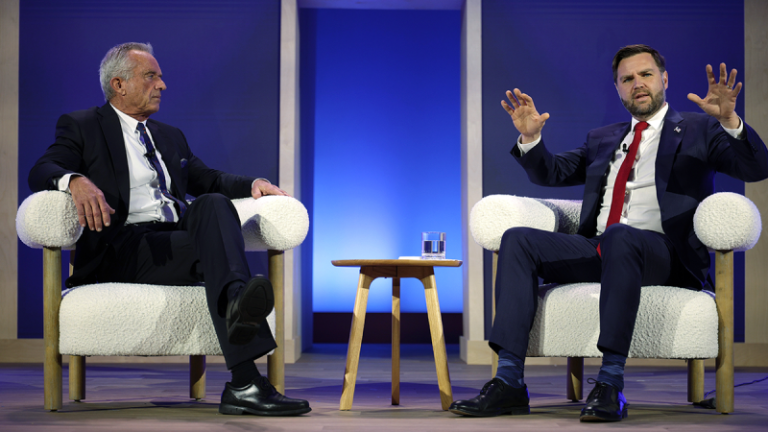Mid-tier precious metals producer Americas Gold and Silver (TSX:USA,NYSEAMERICAN:USAS) continues to grow its North American footprint with its intended acquisition of privately owned Crescent Silver.
The two companies inked a US$65 million binding purchase agreement on Thursday (November 13). It includes the past-producing, fully permitted Crescent mine in the Idaho Silver Valley.
Known as “the silver capital of the world,” the region is well known for its immense production of silver, lead and zinc, as well as significant amounts of copper and antimony.
Within this prolific mining district, the Crescent mine is sandwiched between the historic Sunshine and Bunker Hill mines and is just 9 miles from Americas’ Galena complex, an active silver, lead and copper operation.
“The mineralized material at Crescent is the same silver-copper-antimony tetrahedrite material currently processed at Galena,” notes the company’s press release.
The deal comes just one week after the US Geological Survey officially added silver to its list of critical minerals in recognition of the metal’s growing importance to American economic and national security.
Substantial infrastructure is already in place at Crescent, which has a historic 2015 preliminary economic assessment demonstrating the potential to produce 1.4 million to 1.6 million ounces of silver annually.
“Crescent has the potential to be fast tracked into our growing production profile alongside Galena, allowing us to leverage our strong operations team located in the Silver Valley,” said Americas Chair and CEO Paul Andre Huet.
Management believes the company can begin adding feed from Crescent to the Galena mill and generating cashflow from these activities as early as mid-2026. Americas’ team sees plenty of upside on the Crescent property as less than 5 percent of the landholding has been explored, with only two veins delineated for production. In 2026, the company plans to launch a US$3.5 million drill program to test multiple targets both at surface and underground.
The Crescent acquisition includes US$20 million in cash alongside approximately 11.1 million common shares of an equity position in Americas valued at approximately US$45 million.
To cover the cost of the purchase, Americas initially announced it would be conducting a concurrent US$65 million bought-deal private placement via an agreement with Canaccord Genuity and BMO Capital Markets.
Shortly after that news, the company said it was increasing that private placement to US$115 million on strong investor interest. Eric Sprott, Americas’ largest shareholder, will participate in the financing.
“The addition of the Crescent Mine, while potentially improving the project profile of the Company, provides additional synergies only available through rational consolidation and is a transaction that leverages the strength of Paul’s strong operating team in the Silver Valley,” said Sprott, a well-known financier in the mining industry.
Earlier in the week, Americas Gold & Silver published its financial and operational results for Q3. Its consolidated silver production was up 98 percent year-on-year and 11 percent quarter-on-quarter, while its consolidated revenue, including by-product revenue, jumped by 37 percent compared to the same quarter last year to US$30.6 million.
Securities Disclosure: I, Melissa Pistilli, hold no direct investment interest in any company mentioned in this article.
India has approved a sweeping overhaul of royalty rates for several critical minerals, continuing its campaign to expand domestic mining and reduce reliance on Chinese imports.
Under the revised framework, graphite with at least 80 percent fixed carbon will be charged a 2 percent royalty based on the average sale price (ASP) determined by the Indian Bureau of Mines, while graphite with lower purity will carry a 4 percent rate.
Caesium and rubidium will each be levied a 2 percent royalty on the ASP of metal contained in the ore, and zirconium will be charged 1 percent.
The government said the changes would encourage more rational bidding in auctions and attract greater private participation in mineral exploration. “The above decision of the Union Cabinet will promote auction of mineral blocks containing caesium, rubidium and zirconium, thereby not only unlocking these minerals but also associated critical minerals found with them, such as lithium, tungsten, REEs, and niobium,” the statement read.
New Delhi has recently pushed to build a self-reliant critical mineral ecosystem amid mounting global supply chain pressures.
China, which produces more than 80 percent of the world’s rare earth elements and controls much of the refining capacity for battery metals, has tightened export restrictions in recent years.
At least nine mineral blocks were offered in the sixth tranche of auctions launched in September, including five graphite blocks, two rubidium blocks, and one each for caesium and zirconium.
These minerals are integral to India’s green industrial transition: graphite is used in electric vehicle (EV) batteries, zirconium in nuclear reactors, caesium in precision timing systems such as GPS, and rubidium in fiber optics and night vision equipment.
The royalty revision also complements broader measures under Prime Minister Narendra Modi’s administration to secure strategic minerals and reduce import dependency.
Earlier this year, India approved a US$1.9 billion plan to source critical materials used in batteries, electronics, and agriculture.
In addition, the government weeks ago was reported to be nearly tripling its production-linked incentive (PLI) program for rare earth magnet manufacturing to over 70 billion rupees (US$788 million), a major step up from the initial US$290 million proposal.
Pending cabinet approval, the expanded plan seeks to develop a full rare earth magnet supply chain for EVs, renewable energy systems, and defense applications.
In parallel, the government is also investing heavily in human capital to sustain this growth. The Ministry of Mines, in coordination with the Skill Council for Mining Sector (SCMS), has launched an initiative to train 5.7 million workers in mining-related occupations by 2030.
The skills gap study for 2025–2030 will map future workforce requirements and identify pathways to develop a “future-ready” labor pool capable of supporting new mineral projects.
“The report will come up with a detailed action plan for the sector on ways to impart skills training to millions of workers to cater to the increasing demand from the sector in the near future,” a senior government official told The Economic Times.
India currently imports about 60 percent of its graphite needs and remains a minor producer of most other critical minerals. The Modi administration aims to more than double mining’s share of GDP to 5 percent by 2030 from 2.2 percent today.
Securities Disclosure: I, Giann Liguid, hold no direct investment interest in any company mentioned in this article.
western copper and gold corporation (TSX: WRN) (NYSE American: WRN) (‘Western’ or the ‘Company’) is pleased to announce the appointment of Mark E. Smith, P.E., P.Eng., to its Board of Directors (the ‘Board’).
Mr. Smith is a professional engineer with over 45 years of global mining experience. He co-founded and managed Vector Engineering for nearly 25 years, a consulting and engineering firm with a staff of 500 people and offices in seven countries. His technical leadership and judgement have been relied upon by many of the world’s largest mining companies, including BHP, Rio Tinto, Barrick, Newmont, Vale, Glencore, and Teck. Mr. Smith holds a Master’s degree in Civil and Geotechnical Engineering from the University of Nevada, Reno.
He has worked extensively in the Yukon, contributing to projects such as Coffee, Macpass, and Mactung, and has advised the Government of Yukon on mine waste and heap leach management practices. More recently, he was appointed by the Government of Yukon to chair the Independent Review Board for the Eagle Mine investigation.
‘We are extremely pleased to welcome Mark to our Board,’ said Sandeep Singh, President & Chief Executive Officer. ‘Mark has a deep understanding of the Yukon and has been a well-respected technical voice in the North for over a decade. His extensive experience and deep knowledge of the territory will be invaluable as we advance Casino through environmental assessment and permitting.’
‘Mark’s addition to the Board builds on Western’s commitment to the highest technical and environmental standards,’ said Raymond Threlkeld, Chairman of the Board. ‘His global expertise will strengthen Western’s ability to sustainably advance a world-class operation in the Yukon.’
‘I’ve dedicated my career to developing successful and environmentally-sound copper and gold projects around the world,’ said Mark E. Smith. ‘From concept to design, construction, operations, and closure, I’ve helped bring hundreds of projects into successful, sustainable production. I’m impressed by the approach taken towards the Casino Project and believe it can have a positive impact on the Yukon. I’m very happy to have been invited to join the Western team.’
ABOUT western copper and gold corporation
western copper and gold corporation is advancing the Casino Project, Canada’s premier copper-gold mine in the Yukon and one of the most economic greenfield copper-gold mining projects in the world.
The Company is committed to working collaboratively with First Nations and local communities to progress the Casino Project, using internationally recognized responsible mining technologies and practices.
For more information, visit www.westerncopperandgold.com.
On behalf of the board,
‘Sandeep Singh’
Sandeep Singh
President & CEO
western copper and gold corporation
For more information, please contact:
Cameron Magee
Director, Investor Relations & Corporate Development
western copper and gold corporation
437-219-5576 or cmagee@westerncopperandgold.com
Cautionary Note Regarding Forward-Looking Statements
This news release includes certain ‘forward-looking information’ and ‘forward-looking statements’ (collectively ‘forward-looking statements’) within the meaning of applicable Canadian and United States securities legislation including the United States Private Securities Litigation Reform Act of 1995. These forward-looking statements are made as of the date of this news release. Forward-looking statements are frequently, but not always, identified by words such as ‘expects’, ‘anticipates’, ‘believes’, ‘plans’, ‘projects’, ‘intends’, ‘estimates’, ‘envisages’, ‘potential’, ‘possible’, ‘strategy’, ‘goals’, ‘opportunities’, ‘objectives’, or variations thereof or stating that certain actions, events or results ‘may’, ‘could’, ‘would’, ‘might’ or ‘will’ be taken, occur or be achieved, or the negative of any of these terms and similar expressions. Such forward-looking statements herein include statements regarding the Company’s plans to advance the Casino Project through environmental assessment and permitting; expectations regarding the contributions and value that Mr. Smith’s appointment will bring to the Board and the Company; the Company’s ability to sustainably advance a world-class operation in the Yukon; expectations that the Casino Project can have a positive impact on the Yukon; and the Company’s commitment to maintaining the highest technical and environmental standards in the development of the Casino Project.
Forward-looking statements involve known and unknown risks, uncertainties and other factors that may cause actual events to be materially different from those expressed or implied by such statements. Such factors include but are not limited to the risk of unforeseen challenges in advancing the Casino Project, potential impacts on operational continuity, changes in general market conditions that could affect the Company’s performance; and other risks and uncertainties disclosed in the Company’s annual information form and Form 40-F for the most recently completed financial year and its other publicly filed disclosure documents.
Forward-looking statements are based on assumptions management believes to be reasonable, such assumptions and factors as set out herein, and in the Company’s annual information form and Form 40-F for the most recently completed financial year and its other publicly filed disclosure document.
Although the Company has attempted to identify important factors that could cause actual results to differ materially from those contained in forward-looking statements, other factors may cause results to be materially different from those anticipated, described, estimated, assessed or intended. These forward-looking statements represent the Company’s views as of the date of this news release. There can be no assurance that any forward-looking statements will be accurate, as actual results and future events could differ materially from those anticipated in such statements. Accordingly, readers should not place undue reliance on forward-looking statements. The Company does not intend to and does not assume any obligation to update forward-looking statements other than as required by applicable law.
To view the source version of this press release, please visit https://www.newsfilecorp.com/release/274462
News Provided by Newsfile via QuoteMedia
White House press secretary Karoline Leavitt said Wednesday that President Donald Trump ‘remains in exceptional physical health’ after concerns have swirled in recent months, including when the president received an MRI scan in October.
‘As stated in the memo provided on October 10th, President Trump received advanced imaging at Walter Reed Medical Center as part of his routine physical examination,’ Leavitt said during Wednesday’s White House press briefing. ‘The full results were reviewed by attending radiologists and consultants, and all agreed that President Trump remains in exceptional physical health.’
The response followed a member of the media asking for additional details as to why Trump received an MRI during a checkup at Walter Reed National Military Center in Maryland in October.
‘I got an MRI, it was perfect,’ Trump told reporters on Air Force One in October.
‘I gave you the full results,’ he added. ‘We had an MRI, and the machine, you know, the whole thing, and it was perfect.’
The checkup in October has been described as routine by the administration, with Trump’s physician reporting that Trump is in ‘exceptional health.’
Media outlets and others have fanned the flames of concerns around Trump’s health earlier in 2025 when he was spotted with swollen legs in July while attending the FIFA Club World Cup final in New Jersey, as well as when other photos that same month showed him with bruises on his hands.
Leavitt said in July, while reading a health memo, that Trump’s swollen legs were part of a ‘benign and common condition’ for individuals older than age 70, while the bruising on his hands was attributable to ‘frequent handshaking and the use of aspirin.’
Navy Capt. Sean P. Barbabella, the physician to the president, wrote in a memorandum to Leavitt following the October checkup that the visit was part of an ongoing health maintenance plan that included ‘advanced imaging, laboratory testing and preventative health assessments conducted by multidisciplinary team of specialists.’
Barbabella said in his October summary that Trump, ‘remains in exceptional health, exhibiting strong cardiovascular, pulmonary, neurological, and physical performance.’
The checkup was Trump’s second in 2025, following an April visit that Barbabella said found Trump ‘remains in excellent health.’
Leavitt added Wednesday that Trump is slated to hold a dinner later that evening, which she said might include press attendance where the media could see Trump’s physical state themselves.
‘I know all of you will see with your own eyes later this evening when he opens up his dinner to the press, and perhaps you will see him when he signs the bill to reopen the federal government,’ she said. ‘So stay tuned on plans for that.’
Fox News Digital’s Brie Stimson contributed to this report.
The Supreme Court revealed on Monday it will consider a lawsuit, originally brought by the Republican National Committee, over whether counting ballots that arrive after Election Day is lawful.
The case will examine a state law in solid red Mississippi that allows ballots postmarked by Election Day to be counted if they are received up to five days after the election.
The RNC, which has fought to stop late-arriving ballots over allegations that they undermine trust in the vote counting process, argues the state law conflicts with federal law and is hoping the Supreme Court will ban them nationwide.
David Becker, executive director of the Center for Election Innovation & Research, emphasized that the court would not be weighing in on the legality of mail-in ballots, which are accepted in some form in every state, or whether ballots could be cast after Election Day.
‘What this case is about is whether a ballot that was cast on or before Election Day, sealed in an envelope, placed in the U.S. Mail and received by a state some days later can be counted if a state law says that that’s okay,’ Becker told Fox News Digital.
Mississippi’s rule went into effect in 2020, when many states implemented new emergency election policies over COVID-19. Well over a dozen, both red and blue, accept late mail-in ballots if they are postmarked by Election Day.
The RNC sued over the law and secured a win at the conservative U.S. Court of Appeals for the 5th Circuit, leading Mississippi to bring the matter to the Supreme Court. The state argues ‘election’ means voters’ final choice, which occurs when ballots are cast by Election Day. Receipt of ballots that are marked and submitted effectuates the voters’ choice but are ‘not part of the election itself,’ Mississippi told the Supreme Court in a filing. As such, the state argues, federal law does not prohibit short, post-Election Day windows to receive ballots cast on time.
Becker warned of repercussions that could come of the Supreme Court upholding the 5th Circuit’s ruling, saying it could invite a host of new litigation because close races could come down to ballots cast by Election Day that arrive a day or two after the election because of U.S. Postal Service delays.
‘We as a society do not want a bunch of ballots coming in the day or two after, delivered late, not because of the voter but because of the Postal Service, and having those ballots being the margin of victory in a close race,’ Becker said.
In a statement, RNC chairman Joe Gruters echoed broader sentiments of election security hawks who have taken issue with late-arriving ballots.
‘Allowing states to count large numbers of mail-in ballots that are received after Election Day undermines trust and confidence in our elections,’ Gruters said.
‘Elections must end on Election Day, which is why the RNC led the way in challenging this harmful state law. The RNC has been hard at work litigating this case for nearly two years, and we hope the Supreme Court will affirm the Fifth Circuit’s landmark decision that mail-in ballots received after Election Day cannot be counted.’
Sen. Rick Scott, R-Fla., said he doesn’t want to blow up Obamacare, but he does want to give Americans another option.
Senate Democrats, led by Senate Minority Leader Chuck Schumer, D-N.Y., made their core shutdown argument about expiring Obamacare subsidies that they argued, if allowed to sunset at the end of this year, would lead to millions of Americans seeing their healthcare premium costs skyrocket.
But Scott and other Republicans contend that simply extending the current subsidies would see billions in taxpayer money funneled to insurance companies, without a dime actually finding its way to the pockets of Americans looking for insurance options.
His plan would ‘let the person be a consumer,’ he told Fox News Digital from an interview in his office.
‘I just think we ought to fix Obamacare,’ Scott said. ‘So the way I think about it is, look, if you want to buy off the exchange, you know, an Obamacare product, do it. If that’s what you want. I mean, leave that there.’
‘But I know what a consumer is going to do,’ he continued. ‘Consumers are going to be way more creative of how they take care of themselves.’
Scott said his idea, in a sea of burgeoning possibilities on what to do next when it comes to answering the healthcare issue raised by congressional Democrats, would directly send any kind of Obamacare subsidy money directly to a Health Savings Account (HSA).
His plan, which he’s been working on in the background for some time, was given extra credence when President Donald Trump on Saturday recommended to Senate Republicans that ‘the Hundreds of Billions of Dollars currently being sent to money sucking Insurance Companies in order to save the bad Healthcare provided by ObamaCare, BE SENT DIRECTLY TO THE PEOPLE SO THAT THEY CAN PURCHASE THEIR OWN, MUCH BETTER, HEALTHCARE, and have money left over.’
‘In other words, take from the BIG, BAD Insurance Companies, give it to the people, and terminate, per Dollar spent, the worst Healthcare anywhere in the World, Obamacare,’ Trump said on his social media platform Truth Social.
Trump’s post was in response to Schumer and Democrats’ counter-offer to reopen the government, which Republicans quickly rejected, that would have extended the Obamacare subsidies by one year.
Should the subsidies be permanently extended, which was baked into Democrats’ original demand at the beginning of the shutdown, it would cost $350 billion over the next decade, according to the Congressional Budget Office.
Scott viewed the latest proposal as nothing but pure politics and something that Republicans would never vote for.
‘It’s all about politics. It’s not about people,’ he said. ‘So I think Schumer and the Democrats are heartless. They’re absolutely heartless.’
It’s also an idea that Scott said he had spoken to the president about before.
Republicans have railed against the current state of the subsidies, which were enhanced under former President Joe Biden during the COVID-19 pandemic. The enhancement blew off the income cap on the subsidies, allowing people making well above the poverty line to qualify for them.
Scott blasted the current state of the enhanced Obamacare subsidies, but he noted that he was not suggesting that the subsidy be completely done away with.
‘You could be making $250,000 a year, so you’re paying for these people that are making $250,000 a year, and you’re paying with your taxes for them,’ Scott said. ‘How? Tell me how that makes sense.’
He hopes to have his legislative proposal done quickly, as others in the GOP are similarly floating ideas on how to tackle the issue of expiring subsidies and rising healthcare costs.
‘Let the consumer be the buyer of healthcare,’ he said. ‘Any dollars we’re going to give to spend on it goes to the consumer and let them buy what they want to buy.’
The end of the longest government shutdown in U.S. history is finally in sight, with the House of Representatives set to vote on a federal funding bill later Wednesday evening.
House lawmakers are set to take a procedural vote in the 5 p.m. hour on whether to allow debate on the measure. If the legislation survives, a final vote is expected in the 7 p.m. hour.
The government has been shut down for 43 days as Democrats and Republicans hotly debated the merits of the GOP’s initial federal funding bill, a short-term extension of fiscal year (FY) 2025 spending levels through Nov. 21.
The vast majority of Democrats are still against the legislation, including House Democratic leadership, but GOP lawmakers across several ideologically diverse factions have signaled confidence in a nearly unified Republican vote.
House Freedom Caucus Policy Chairman Chip Roy, R-Texas, said he heard no dissent on the bill from his band of fiscal hawks.
‘I’m not going to speak for everybody, but I think there’s general support. So you know, I’m unaware of any opposition of significance,’ he told reporters Tuesday night.
House Appropriations Committee Chairman Tom Cole, R-Okla., said, ‘Nothing’s ever easy around here. But, look, I didn’t notice any dissent … I think the votes will be there on our side.’
But with a razor-thin majority, House GOP leaders can only afford to lose two Republican votes at most to pass the bill without relying on any Democrats.
‘I’m very hopeful,’ House Majority Leader Steve Scalise, R-La., told Fox News Digital when asked if Republicans had the votes to pass the bill. ‘I think you’re seeing just a few Democrats come to their senses. It should be a lot more.’
Meanwhile, the shutdown’s effects on the country have grown more severe by the day.
Many of the thousands of air traffic controllers and Transportation Security Administration (TSA) agents who had to work without pay were forced to take second jobs, causing nationwide flight delays and cancellations amid staffing shortages at the country’s busiest airports. Millions of Americans who rely on federal benefits were also left in limbo as funding for critical government programs ran close to drying out.
At the heart of the issue was Democratic leaders’ refusal to back any funding bill that did not also extend COVID-19 pandemic-era enhanced Obamacare subsidies that are set to expire at the end of this year. Democrats argued it was their best hope of preventing healthcare price hikes for Americans across the U.S.
Republicans agreed to hold conversations on reforming what they saw as a broken healthcare system, but they refused to pair any partisan priority with federal funding.
The initial bill passed the House on Sept. 19 but stalled in the Senate for weeks, when Democrats sank the bill more than a dozen times.
However, after weeks of stalemate and the clock running down on their Nov. 21 bill, a new compromise emerged that got support from eight Senate Democrats to carry it across the finish line.
The new legislation would extend FY 2025 federal funding levels through Jan. 30, to give negotiators more time to strike a longer-term deal for FY 2026.
It would also give lawmakers some headway with that mission, advancing legislation to fund the Department of Agriculture and the Food and Drug Administration; the Department of Veterans Affairs and military construction; and the legislative branch.
In a victory for Democrats, the deal would also reverse federal layoffs conducted by the Trump administration in October, with those workers getting paid for the time they were off.
A side deal struck in the Senate also guaranteed Senate Democrats a vote on legislation extending the enhanced Obamacare subsidies. Speaker Mike Johnson, R-La., however, has made no such promise in the House.
If passed on Wednesday night, the legislation heads to President Donald Trump’s desk for a signature.
When asked about the bill on Tuesday, a White House official told Fox News Digital, ‘President Trump has wanted the government reopened since the first day Democrats shut it down. The action in the Senate is a positive development, and we look forward to seeing it progress.’
A bill to end the record-breaking U.S. government shutdown is headed to President Donald Trump’s desk after more than 42 days.
Federal funding legislation aimed at opening the government passed in the House Wednesday evening, ending the weeks-long fiscal standoff that has largely paralyzed Congress since Oct. 1. Republicans on the House floor erupted in cheers when the bill prevailed while the majority of Democrats quietly exited the chamber.
The White House said Trump would sign the bill at 9:45 p.m. this evening.
Six Democrats voted with all but two Republicans to pass the bill with a 222 to 209 margin. The Democrats who voted in favor of the legislation are Reps. Tom Suozzi, D-N.Y., Henry Cuellar, D-Texas, Adam Gray, D-Calif., Marie Gluesenkamp Perez, D-Wash, and Don Davis, D-N.C.
When the House took its initial vote on federal funding legislation on Sept. 19, just one Democrat — Golden — voted with the GOP.
The vast majority of House Democrats opposed the bill, however, including their senior ranks.
House Minority Leader Hakeem Jeffries, D-N.Y., reiterated to reporters hours before the vote that Democrats were frustrated the bill did not do anything about COVID-19 pandemic-era healthcare subsidies under Obamacare, also known as the Affordable Care Act (ACA). Those enhanced tax credits expire this year.
‘House Democrats are here on the Capitol steps to reiterate our strong opposition to this spending bill because it fails to address the Republican healthcare crisis, and it fails to extend the Affordable Care Act tax credit,’ Jeffries said.
House Speaker Mike Johnson, R-La., sounded optimistic in comments to reporters Wednesday morning ahead of the vote, however.
‘I wanted to come out and say that we believe the long national nightmare will be over tonight,’ Johnson said. ‘It was completely and utterly foolish and pointless in the end.’
Some drama threatened to crack House GOP unity earlier in the day, however, as some Republicans in the lower chamber seethed over a last-minute provision added to the bill that allows senators whose communications were tapped during former Special Counsel Jack Smith’s probe to sue the federal government for $500,000 each.
Reps. Chip Roy, R-Texas, Austin Scott, R-Ga., and Morgan Griffith, W.Va., all shared concerns with the measure but said they would not extend the government shutdown over it.
Johnson appeared to placate their and others’ concerns, at least for now, with a promise to vote next week on separate legislation repealing that provision.
Rep. Greg Steube, R-Fla., told reporters he would vote against the bill over its inclusion, however.
‘I’m not voting to send Lindsey Graham half a million dollars,’ he told reporters.
He and Rep. Thomas Massie, R-Ky., voted against the final bill, but their opposition was not enough to sink legislation.
Meanwhile, the shutdown’s effects on the country have grown more severe by the day.
Many of the thousands of air traffic controllers and Transportation Security Administration (TSA) agents who had to work without pay were forced to take second jobs, causing nationwide flight delays and cancellations amid staffing shortages at the country’s busiest airports. Millions of Americans who rely on federal benefits were also left in limbo as funding for critical government programs ran close to drying out.
At the heart of the issue was Democratic leaders’ refusal to back any funding bill that did not also extend the enhanced Obamacare subsidies. Democrats argued it was their best hope of preventing healthcare price hikes for Americans across the U.S.
Republicans agreed to hold conversations on reforming what they saw as a broken healthcare system, but they refused to pair any partisan priority with federal funding.
In the end, a compromise led by the Senate — which saw eight Democrats in the upper chamber join colleagues to pass the bill in a 60 to 40 vote — included a side deal guaranteeing the left a vote on extending the enhanced subsidies sometime in December.
Johnson has made no such promise in the House, however.
And the lack of a guarantee on extending those subsidies has angered progressives and Democratic leaders.
‘What were Republicans willing to give in the end, other more than a handshake deal to take a future vote on extending the healthcare subsidies?’ Rep. Shomari Figures, D-Ala., said Wednesday. ‘We all know that a future vote is the equivalent of asking two wolves and a chicken to vote on what’s for dinner. It is dead on arrival.’
Republican Study Committee Chairman August Pfluger, R-Texas, criticized Democrats for prolonging the shutdown for little payoff.
‘They literally got absolutely nothing except for a total and complete surrender, that accomplished nothing more than hurting American families,’ he said.
The bill kicks the current federal funding fight to Jan. 30, by which point House GOP leaders said they were confident they’ll finish work on a longer-term deal for fiscal year 2026.
It also includes full-year federal spending for the Department of Agriculture, the legislative branch, and the Department of Veterans Affairs — three of 12 annual appropriations bills that Congress is tasked with passing annually.
‘There are nine remaining bills, and we’d like to get all of those done in the next few weeks. And, so, [House Appropriations Committee Chairman Tom Cole, R-Okla.] and his appropriators will be working overtime,’ House Majority Leader Steve Scalise, R-La., told Fox News Digital.
Asked if he thought they’d get it done by that date, Cole said, ‘I think we can.’
Vice President JD Vance praised President Donald Trump’s ‘bulldozer’ approach to public health, calling it a necessary force that ‘just had to happen,’ during remarks at Wednesday’s Make America Healthy Again (MAHA) summit.
The summit, held at the Waldorf Astoria in Washington, D.C., was centered on Health and Human Services (HHS) Secretary Robert F. Kennedy Jr.’s MAHA movement — aimed at improving nutrition, eliminating toxins, preserving natural habitats and fighting the chronic disease epidemic in the U.S.
‘That is a good summary of Donald J. Trump is that he takes a bulldozer to Overton windows every single day,’ Vance told the HHS secretary during the event. ‘It just had to happen… One of the criticisms that Bobby will always get, and I always think it’s such b——-, excuse my language… [is that] sometimes there’s this attack where people say that conclusion is not supported by the science, or this or that conclusion is a conspiracy theory.’
‘Science, as practiced in its best form, is that if you disagree with it, then you ought to criticize it, and you ought to argue against it. You can’t shut down the debate,’ Vance continued. ‘If you look at all the big public health debates that we’ve had in this country over the last 20 or 30 years… they tried to silence the people who were saying things that were outside the Overton window. As we found out the hard way over the last few years, it was very often that people who were outside the Overton window were actually right, and all the experts were wrong.’
Vance went on to say the country could not advance unless Americans become comfortable with people who are ‘willing to challenge orthodoxy.’
He also vowed to keep Appalachia in the forefront of the conversation, noting residents have higher premature mortality rates due to a long history of being failed by the public health system.
‘You know what really p—– people off — when they realize that their loved ones are dying much sooner than everybody else,’ said Vance, whose autobiography, ‘Hillbilly Elegy,’ details his own upbringing in Appalachia. ‘That is a big part of the story of what’s going on in Appalachia, and why I think so many people in Appalachia feel left behind.’
He described himself as ‘the golden boy’ of Appalachia, admitting he feels guilt about the many people who grew up in families like his and have not had an easy life or the same amount of economic opportunity.
‘That gives me a sense of purpose because I want those people to have the same opportunities that I’ve had,’ Vance said. ‘But it also gives me a great sense of anger, because we never should have gotten to the point that we are today. The reason that we have, is because of failed leadership over generations.’
When discussing the people of Appalachia, he said they are people who, ‘though they don’t have much, would take the shirt off their back and give it to a complete stranger, because that’s what you do.’
‘If you go back to America’s biggest wars — World War I, World War II, Vietnam — which were the counties that filled their draft quotas with volunteers instead of with draftees?’ Vance posed. ‘It’s very often the parts in deep Appalachia where you’ve got grinding poverty, but you’ve also got this incredible love of country.’
‘So if any place in this country deserves not to be left behind, it’s Appalachia… These are people who deserve to live better, healthier lives, but they really have been left behind by this country’s leadership,’ Vance added.










